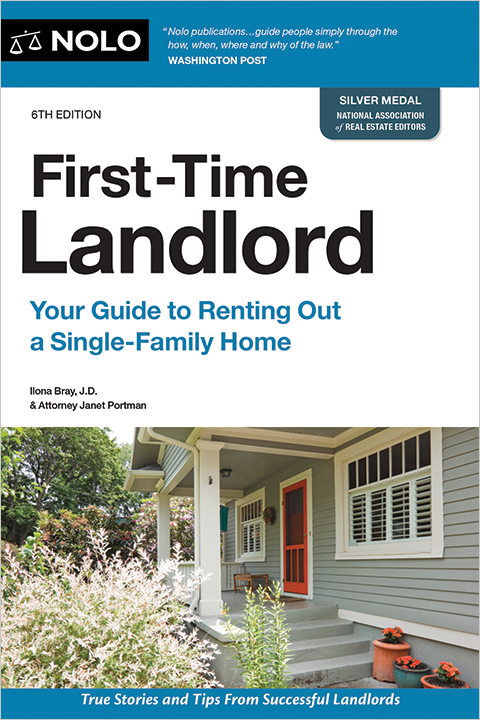Introduction
Retirement is a significant life milestone, and choosing the right destination for your golden years is a crucial decision. The United States, with its diverse landscapes, vibrant cities, and various retirement options, is a popular choice for retirees from around the world. Whether you’re considering retiring in the USA for its cultural attractions, healthcare system, or simply the allure of a new adventure, careful planning is essential to ensure a comfortable and fulfilling retirement. In this comprehensive guide, we’ll walk you through the key factors and considerations to help you make the best choice for your retirement in the USA.
Planning for retirement in the USA requires careful consideration of various factors, from financial preparedness to lifestyle preferences. In this article, we’ll explore the key aspects you should address when planning for a comfortable and fulfilling retirement in the United States.
Financial Preparedness: Before making any retirement plans, assess your financial readiness. This includes evaluating your savings, investments, pension, Social Security benefits, and any other sources of income. Create a budget that outlines your expected expenses in retirement and make sure your finances are in order.
Healthcare Coverage: Healthcare is a critical consideration for retirees. Understand how Medicare works and when you’ll be eligible to enroll. You may also want to explore supplemental health insurance plans to cover expenses not included in Medicare. Research healthcare facilities in your chosen retirement location to ensure accessibility and quality of care.
Cost of Living: The cost of living varies significantly across the United States. Some regions are more affordable than others. Research and compare the cost of housing, groceries, transportation, and other essentials in potential retirement destinations. Consider whether you’d prefer urban, suburban, or rural living, as this can also impact living costs.
Housing Options: Decide whether you’ll rent or buy a home in your retirement location. Explore housing markets and real estate trends to make an informed decision. Many retirees downsize or choose to live in 55+ communities or retirement villages, which often offer various amenities and a sense of community.
Climate and Lifestyle: Think about your preferred climate and lifestyle. Do you want to enjoy warm, sunny weather year-round, or do you prefer seasonal changes? Consider your hobbies and interests, such as golf, hiking, or cultural activities, and how your chosen location can accommodate them.
Taxes: Be aware of the tax implications of retiring in a specific state. Some states have no income tax, while others have higher property or sales taxes. Research tax-friendly states for retirees, as this can significantly impact your finances.
Social and Recreational Opportunities: Retirement should be a time to enjoy life to the fullest. Investigate the availability of social and recreational activities in your retirement destination. Many areas offer opportunities for volunteering, joining clubs, attending cultural events, and pursuing hobbies.
Proximity to Family and Friends: Consider your proximity to family and friends. Being close to loved ones can provide emotional support and companionship during your retirement years. Factor in travel costs and accessibility when deciding on your retirement location.
Legal and Immigration Considerations: If you’re an international retiree, understand the legal requirements and immigration considerations for retiring in the USA. This may include visa and residency requirements.
Estate Planning: Develop or update your estate plan to ensure your assets are distributed according to your wishes. Consult with legal and financial professionals to create a comprehensive estate plan that includes wills, trusts, and power of attorney documents.
Retirement Community or Independent Living: Research retirement communities or independent living facilities if you’re considering this option. These communities often offer a range of amenities and services tailored to retirees, providing peace of mind and a supportive environment.
Seek Professional Advice: Consider consulting with financial advisors, retirement planners, and legal professionals who specialize in retirement and estate planning. Their expertise can help you make informed decisions and secure your financial future.
Retiring in the USA can be a rewarding experience with the right planning and preparation. By carefully addressing these key considerations, you can embark on your retirement journey with confidence, knowing that you’ve taken the necessary steps for a comfortable and enjoyable retirement in the United States.
Should you desire more in-depth information, it’s available for your perusal on this page: What Is Retirement Planning? Steps, Stages, and What to Consider
Financial Preparedness:
Retirement planning begins with your financial readiness. Evaluate your retirement savings, investments, and income sources. Consider consulting a financial advisor to ensure your financial plan aligns with your retirement goals. Understanding the cost of living in your desired retirement location is essential for budgeting effectively.
“Healthcare should be a top consideration in your retirement plan. Investigate health insurance options and Medicare eligibility to ensure you have access to quality healthcare as you age. Additionally, explore opportunities for staying physically active and socially engaged in your retirement community for a fulfilling and healthy retirement.”
Should you desire more in-depth information, it’s available for your perusal on this page: What Is Retirement Planning? Steps, Stages, and What to Consider

Choosing the Right Location:
The USA offers a wide range of retirement destinations, each with its unique appeal. Consider factors such as climate, cost of living, healthcare facilities, cultural attractions, and proximity to family when selecting your retirement spot. Popular options include Florida, Arizona, and California, known for their favorable climates and retirement-friendly communities.
“Beyond the traditional retirement destinations, explore lesser-known gems that might align better with your retirement dreams. Whether it’s the charm of a small coastal town, the tranquility of a mountain retreat, or the excitement of an urban center, the USA has diverse options to cater to every retiree’s vision of the ideal retirement.”
Explore this link for a more extensive examination of the topic: Retirement Planning: The Ultimate Guide for 2022

Healthcare Access:
Access to quality healthcare is crucial in retirement. The USA has a world-class healthcare system, but it’s essential to understand how your health insurance works in retirement. Medicare, a federal health insurance program for seniors, plays a significant role in covering medical expenses for retirees. Familiarize yourself with its coverage options and enrollment requirements.
Certainly, here’s an extended idea:
“As you plan for retirement in the United States, prioritizing access to quality healthcare is paramount. The U.S. boasts a world-class healthcare system renowned for its advanced medical facilities and services. However, navigating the healthcare landscape in retirement can be complex.
One essential component of healthcare for retirees is Medicare, a federal health insurance program designed specifically for seniors aged 65 and older. Medicare provides coverage for a range of medical expenses, including hospital stays, doctor visits, and prescription medications. Understanding how Medicare works and its various coverage options is crucial for a seamless transition into retirement.
Begin by familiarizing yourself with the different parts of Medicare, namely Part A (hospital insurance) and Part B (medical insurance). While Part A typically comes with no monthly premium for most beneficiaries, Part B requires a monthly premium. Enrolling in both parts is often advisable to ensure comprehensive coverage for your healthcare needs.
Moreover, be aware of the initial enrollment period for Medicare, which typically spans seven months, starting three months before your 65th birthday month and ending three months after. Missing this window could result in late enrollment penalties, so it’s vital to enroll on time.
Beyond Medicare, you may also consider supplemental insurance plans, known as Medigap policies, to fill the gaps in your healthcare coverage. These plans can help cover out-of-pocket expenses, such as deductibles and copayments, offering you added financial security in retirement.
In summary, securing access to quality healthcare during retirement is a significant aspect of planning for your future in the United States. Understanding the ins and outs of Medicare, enrolling on time, and exploring supplemental insurance options will help ensure that your healthcare needs are met, allowing you to enjoy a fulfilling and healthy retirement.”
You can also read more about this here: Guide to Retirement | J.P. Morgan Asset Management

Legal and Immigration Considerations:
If you’re a non-U.S. citizen planning to retire in the USA, you must navigate immigration and legal requirements. Ensure your visa or immigration status aligns with your retirement plans, and consult with immigration experts or legal advisors to address any potential challenges.
Navigating immigration and legal requirements as a non-U.S. citizen planning to retire in the USA is a crucial step in ensuring a smooth and hassle-free transition into your retirement years. Here are some essential considerations for international retirees:
1. Visa Categories: Explore the visa categories available for retirees. While there isn’t a specific retirement visa in the USA, some options may suit your circumstances. For example, the EB-5 Immigrant Investor Program allows foreign investors to obtain a Green Card by investing in a new commercial enterprise that creates jobs.
2. Family Sponsorship: If you have close family members who are U.S. citizens or permanent residents, they may be able to sponsor you for a family-based Green Card. Eligible family members typically include spouses, parents, and unmarried children.
3. Retirement Communities: Some retirement communities in the USA offer visa sponsorship programs for international retirees. These programs can simplify the immigration process and provide you with a supportive retirement environment.
4. Consular Processing: If you’re residing outside the USA, you’ll typically go through consular processing at a U.S. embassy or consulate in your home country. This involves attending an interview and providing the necessary documentation to obtain a visa.
5. Financial Requirements: Be prepared to demonstrate your financial stability and ability to support yourself during your retirement in the USA. Immigration authorities may request proof of income, savings, or investments.
6. Duration of Stay: Understand the terms of your visa and the duration of your stay in the USA. Some visas may be temporary, while others can lead to permanent residency. Ensure you comply with visa conditions to avoid legal issues.
7. Tax Implications: Consult with tax professionals who specialize in international tax matters. Retirees with financial assets in both their home country and the USA may have complex tax obligations. Understanding these requirements can help you avoid penalties and legal complications.
8. Health Insurance: Secure health insurance coverage that meets U.S. requirements. Medicare, the U.S. government health insurance program, is generally only available to U.S. citizens and permanent residents. Consider private health insurance plans designed for international retirees.
9. Legal Assistance: Enlist the services of immigration attorneys who specialize in retiree immigration. They can guide you through the complex legal processes and help you make informed decisions.
10. Comply with Regulations: Stay informed about changes in immigration laws and regulations. Compliance with U.S. laws is crucial for maintaining your legal status in the country.
11. Consult U.S. Embassies and Consulates: Contact the U.S. embassy or consulate in your home country for specific visa application procedures and requirements. They can provide up-to-date information and guidance.
Navigating the immigration and legal aspects of retiring in the USA as a non-U.S. citizen can be complex, but with careful planning, professional guidance, and a clear understanding of the requirements, you can make your retirement dreams in the USA a reality. By addressing these considerations, you’ll be well-prepared to enjoy a comfortable and fulfilling retirement in the United States.
Additionally, you can find further information on this topic by visiting this page: Overview of Immigrant Eligibility for Federal Programs – National …

Housing Choices:
Your choice of housing greatly impacts your retirement lifestyle. Consider downsizing, relocating to a retirement community, or aging in place in your current home. Each option has its advantages and challenges, so weigh them carefully based on your preferences and needs.
“As you plan for retirement, don’t forget about the emotional and social aspects of this life transition. Nurture your relationships, explore new hobbies or passions, and find ways to contribute to your community or pursue volunteer opportunities. A well-rounded retirement plan encompasses not only financial security but also emotional fulfillment and a sense of purpose.”
To delve further into this matter, we encourage you to check out the additional resources provided here: Senior Housing Options and Retirement Guide | City of Vancouver …

Social and Recreational Activities:
Retirement is an opportunity to explore new interests and enjoy leisure activities. Research the cultural and recreational opportunities available in your chosen retirement location. Joining clubs, volunteering, or pursuing hobbies can help you stay active and engaged in your community.
“Embrace retirement as a chance to reignite your passions and discover new ones. From art classes to golf clubs, there are numerous avenues to explore your interests and engage with like-minded individuals. By staying active and involved in your community, retirement can be a fulfilling and enriching chapter of your life.”
To delve further into this matter, we encourage you to check out the additional resources provided here: EN-05-10024 – Understanding the Benefits – January 2023

Tax Considerations:
Understand the tax implications of retiring in the USA. Tax laws vary by state, so research the tax-friendly states that align with your financial goals. Consider consulting a tax professional to optimize your tax strategy in retirement.
Certainly, here’s an extended idea:
“As you contemplate retiring in the United States, it’s crucial to have a comprehensive understanding of the tax implications associated with your retirement income. Tax laws in the U.S. can be complex and can vary significantly from state to state. Therefore, conducting thorough research and planning for tax-efficient retirement is essential to preserving your financial well-being.
One of the first steps is to evaluate which state you plan to reside in during your retirement years. Different states have varying tax policies, including income tax rates, property taxes, and sales taxes. Some states are known for their tax-friendliness towards retirees, while others may impose higher tax burdens. Researching and choosing a tax-friendly state that aligns with your financial goals can lead to significant savings over time.
Furthermore, consider consulting with a tax professional or financial advisor who specializes in retirement planning. They can provide personalized guidance tailored to your unique financial situation. An experienced tax advisor can help you optimize your tax strategy by identifying deductions, credits, and other tax incentives available to retirees. They can also assist in developing a tax-efficient withdrawal strategy from retirement accounts, such as 401(k)s and IRAs, to minimize your tax liability.
Additionally, explore tax-advantaged retirement accounts and investment options, such as Roth IRAs, which offer tax-free withdrawals in retirement. Properly structuring your retirement portfolio can have a substantial impact on your overall tax burden.
In summary, understanding and proactively managing the tax implications of retiring in the U.S. is a vital component of your retirement planning. By researching tax-friendly states, seeking expert advice, and optimizing your tax strategy, you can enhance your financial security in retirement and enjoy a more comfortable and fulfilling post-career life.”
For additional details, consider exploring the related content available here 5 Retirement Planning Steps to Take

Estate Planning:
Estate planning is crucial to ensure your assets are distributed according to your wishes. Create or update your will, establish a power of attorney, and consider setting up a trust if needed. These legal documents provide peace of mind and protect your legacy.
Estate planning is a fundamental component of a secure and well-organized retirement in the USA. It involves making essential legal arrangements to protect your assets and ensure they are distributed according to your wishes. Here are key elements to consider in your estate planning:
1. Will: A will is a foundational document in estate planning. It specifies how your assets and property should be distributed upon your passing. If you don’t have a will, your assets may be subject to intestate succession laws, which might not align with your preferences.
2. Power of Attorney (POA): Designate a trusted individual as your power of attorney. This legal representative will have the authority to make financial and legal decisions on your behalf if you become unable to do so due to illness or incapacity.
3. Health Care Proxy: Establish a healthcare proxy or healthcare power of attorney. This person will make medical decisions for you if you’re unable to communicate your wishes. Ensure your healthcare proxy understands your preferences for medical treatment and end-of-life care.
4. Trusts: Depending on your financial situation and goals, you might consider setting up trusts. Trusts can help you manage and distribute assets more efficiently, avoid probate, and provide for specific needs of beneficiaries. Consult with an estate planning attorney to determine if trusts are appropriate for you.
5. Beneficiary Designations: Review and update beneficiary designations on financial accounts, retirement plans, life insurance policies, and other assets. Ensure they align with your current wishes, especially if there have been significant life changes like marriage, divorce, or the birth of children or grandchildren.
6. Guardianship for Dependents: If you have dependents, such as minor children or disabled family members, designate guardians in your will to ensure their well-being in case of your incapacity or passing.
7. Estate Taxes: Understand the estate tax laws in the USA. Federal estate tax laws change periodically, so stay informed about the current thresholds and exemptions. Proper estate planning can help minimize tax liabilities.
8. Legal Assistance: Consult with an experienced estate planning attorney who specializes in U.S. law. Estate planning can be intricate, and legal professionals can provide guidance tailored to your specific situation.
9. Regular Updates: Review and update your estate plan regularly, especially after major life events like marriages, divorces, births, or the acquisition or sale of significant assets. Ensure that your estate plan remains in line with your current circumstances and wishes.
10. International Considerations: If you have assets or beneficiaries outside the USA, be aware of potential international estate planning complications. Consult with experts who understand the intricacies of cross-border estate planning.
By addressing these aspects of estate planning, you can safeguard your assets, protect your legacy, and provide for your loved ones according to your wishes during your retirement in the USA. Proper estate planning not only offers peace of mind but also ensures that your financial and personal affairs are managed efficiently, allowing you to enjoy a comfortable and worry-free retirement.
Don’t stop here; you can continue your exploration by following this link for more details: Retirement planning tools | USAGov

Stay Informed:
The retirement landscape is continually evolving. Stay informed about changes in healthcare policies, tax laws, and retirement regulations that may impact your retirement plans. Regularly review and adjust your financial and retirement strategies as needed.
“In today’s dynamic world, staying adaptable and informed is key to a successful retirement. Embrace lifelong learning, stay engaged with evolving technologies, and explore ways to remain active and connected with others. Remember, retirement is not an endpoint; it’s a new beginning filled with opportunities for personal growth and fulfillment.”
If you’d like to dive deeper into this subject, there’s more to discover on this page: LASERS – LASERS Benefits Louisiana

Conclusion
Retiring in the USA offers a world of opportunities for a comfortable and fulfilling retirement. By carefully considering your financial situation, lifestyle preferences, and legal requirements, you can embark on this new chapter with confidence and enjoy the rewards of your hard-earned retirement.
“Retiring in the USA is a dream come true for many, and with proper planning, it can be a reality. Take the time to assess your financial readiness, explore the diverse retirement destinations, and familiarize yourself with immigration and healthcare aspects. With the right preparations, your retirement in the USA can be a rewarding and enriching experience.”
Explore this link for a more extensive examination of the topic: Vet Guide for HR Professionals
More links
For a comprehensive look at this subject, we invite you to read more on this dedicated page: Guide to Retirement | J.P. Morgan Asset Management
